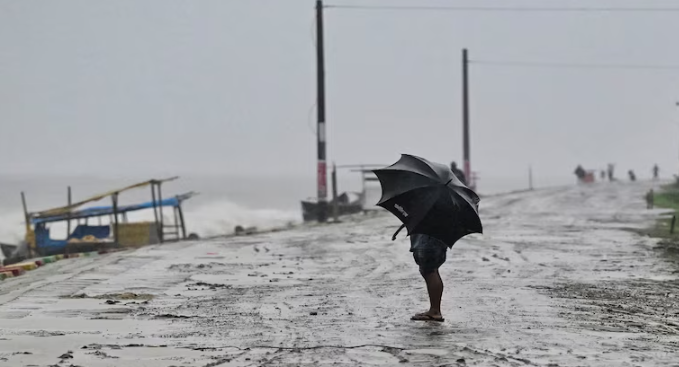Cyclone Remal, the first major cyclonic storm of the year, has left a trail of destruction across India and Bangladesh, claiming the lives of at least 16 people and causing widespread power cuts. According to Reuters, the cyclone made landfall near the coast of the Bay of Bengal, bringing heavy rainfall and strong winds to coastal areas.
Reports indicate that the storm, with wind speeds of up to 135 kph, crossed the area around Bangladesh’s southern port of Mongla and the adjoining Sagar Islands in West Bengal late Sunday, making landfall around 9 pm local time.
Bangladesh and West Bengal bore the brunt of Cyclone Remal, with at least 10 fatalities reported in Bangladesh and the remainder in West Bengal. Authorities stated that some victims perished on their way to relief shelters, while others succumbed to drowning or collapsed homes due to heavy waterlogging and storms.
In West Bengal, four people were electrocuted, bringing the death toll in the state to six. The cyclone also wreaked havoc on power lines, resulting in electricity outages for several coastal areas.
Nearly three million people in Bangladesh and thousands in West Bengal were left without power in the aftermath of Cyclone Remal. Bengal authorities reported the uprooting of at least 1,200 power poles and the destruction of 300 mud huts.
To mitigate accidents, Bangladesh preemptively shut down electricity supplies in some areas. However, fallen trees and snapped electricity lines continued to disrupt power supply in many coastal towns, according to power ministry officials.
The heavy rains accompanying Cyclone Remal led to flooding in the streets of Kolkata, with reports of multiple wall collapses and at least 52 fallen trees. Flight operations in Kolkata resumed after more than 50 cancellations on Sunday, while suburban train services were also restored.
In response to the cyclone’s impact, both India and Bangladesh evacuated over a million people to relief shelters. Disruptions to daily life, including transportation and power supply, have been significant in coastal areas affected by the cyclone.



